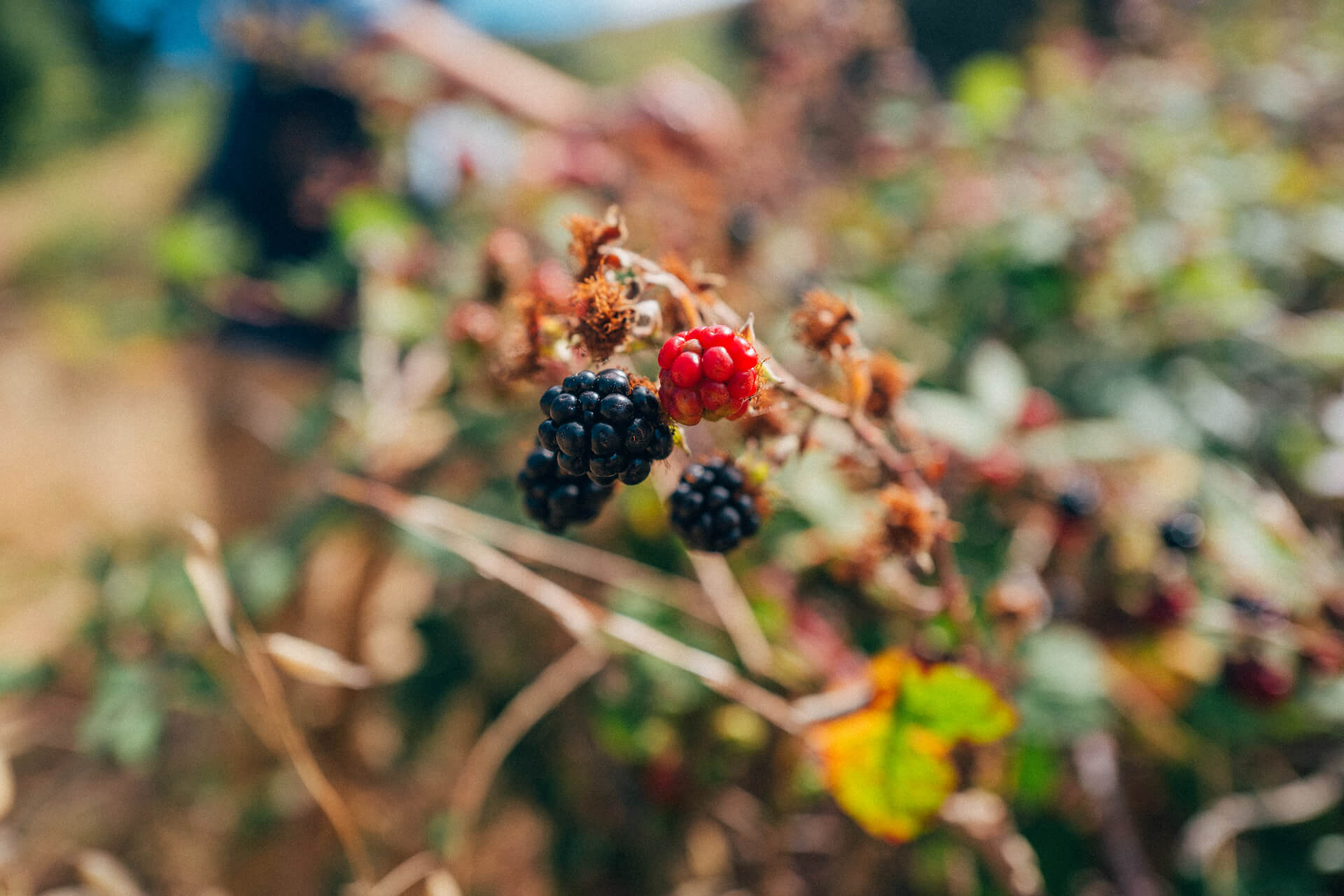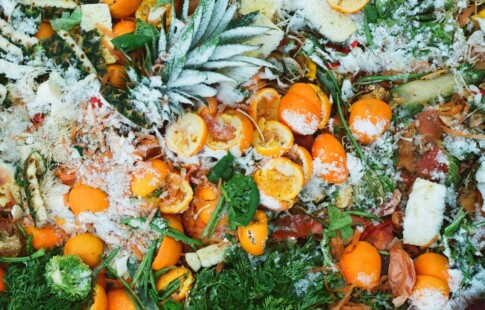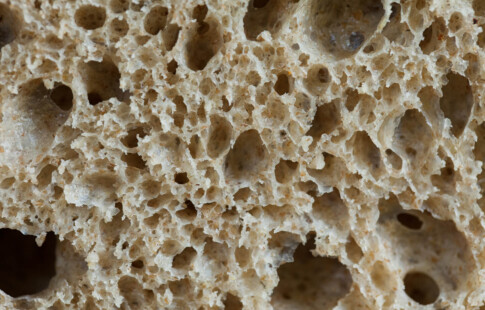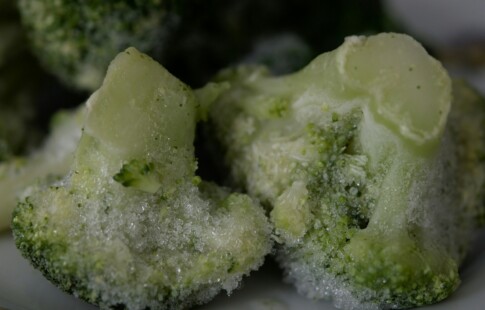
What Does Foraging Mean?
We are reader-supported. When you buy through links on our site, we may earn affiliate commission.
You may walk outside and notice a delicious looking berry on a wild bush or a spring onion popping out of your front yard. Mushrooms grow everywhere, but it is hard to tell what is and is not edible. Could you pick up these fruits of nature and take them home? That kind of thinking leads many to ask, “What does foraging mean?”
Learn about what this food excavation method contains and how it evolved over the years from being a necessity to a downright hobby to others in the 21st century.
So, What Does Foraging Mean?
Most people go to the grocery store when they need onions, berries, or basil. Foraging refers to the act of gathering food and plants directly from nature — skipping the conveniences and alleged cleanliness of the grocery store altogether. Foraging can also include meat from animals and, in some cultures, even insects. Foraging is synonymous with a term you may have heard in your high school history class — hunting and gathering.
Foraging requires intimate knowledge of nature and knowing how to clean and prepare what you find safely and healthily.
Foraging can also be for more than food. Others may forage for herbs for medicinal purposes, religious rituals, or to study and become one with nature. One person’s relationship and habits related to foraging may vary from culture to culture, and the person living there and the person living here.
The motivations to forge vary widely, especially in the 21st century. Hunting and gathering feels antiquated, yet there are many populations and regions around the world that still rely on foraging for survival. Others forage as a means of study.
Populations with varying incomes forage as a way to combat the toxic systems embedded into mass food production, such as hyper-consumptive capitalism, unnecessary waste production, and questionable policies and food regulation from governments.
What Can You Forage For?
We’ve touched on a few of the things you can forage for, but there are a couple of essential disclaimers. First, graze with caution and knowledge. Local resources will have the best information about what is and isn’t native to your area, including safety notes.
However, the climate crisis and rise in invasive species mean not everything is in its proper place. Exercise extreme caution and seek the assistance and advice of experts before touching or eating something. When in doubt, leave it be.
Every community and nation produces different types of forages. One area may have one nut while another has none. If you intend on foraging consistently, understand your entire diet is not likely to come from the practice unless you live in particular environments. Prioritize nutritive, well-rounded diets if possible.
However, these are some of the things you might find on your foraging journeys:
- Medicinal herbs like jewelweed for poison ivy
- Edible weeds, like dandelion and chickweed
- Wild fruits and berries, like pawpaws and huckleberries
- Wild nuts, like hickory or chestnuts
- Roots, like arrowroot or wild parsnip
- Freshwater plants, like watercress
- Sea veggies, like sea kale
- Spices, like mint and ginger
- Grains and seeds, like angelica and maple
Others include morels and edible pollen.
The Reasons Behind Foraging’s Resurgence
By 2050, more than 66% of people will live in urban or suburban areas, yet people are reincorporating foraging back into their routines. Urban foraging is rising for a few reasons. One is for greater sustainability. People want to combat the harmful impacts of exploitative agriculture to reduce carbon footprints and reliance on corporate systems.
Additionally, people want to reclaim foraging in a modern context because of how loaded it is in regard to racism and classism. Marginalized groups subject to slavery were forced to forage to supplement meager rations and unethical working conditions. This is how foraging became associated with poor communities, and shopping at markets became a sign of status. Modern foragers attempt to disseminate these harmful stereotypes with intersectionality.
Another reason is that people are starved for natural interactivity. Urbanization divides humanity from nature more every day. Elevating curiosities about sustainable living have people wanting to reconnect to more pastoral roots.
Growing distrust in food authorities is one of the most fascinating reasons for foraging’s resurgence. People are getting more inquisitive about food safety and how marketers influence our eating and health behaviors through food advertisements. Foraging is a simple solution to those complex worries because it puts people in 100% control of what and how they process and eat food. Foragers know the risks of mistakes, but with thorough research, they obtain total food autonomy.
Foraging in Modern Culture
Because of the proliferation of social media, anything can become a trend — even foraging. What does foraging mean in today’s pop culture?
Let’s start by looking at TikTok. Influencers are posting their outdoor journeys to millions of viewers, inspiring others to obtain a pastoral idyll where you, too, can have “soul-nourishing” diets. Influencers like Alexis Nikole Nelson describe her foraging journey as a way of reclaiming her health after an eating disorder and combating societal classism. Discussions like this shed light on the nuances and assumptions about foragers, whether that is financial or prejudiced.
Despite the positive impacts of some online foraging content, it doesn’t come with even more nuance. Corporations are catching wind of how popular foraging is and making it a commercial success story. Cottagecore and mushroom consumer products like candles are commodifying an anti-commodification narrative. Mentality shifts like this require modern consumers to remain vigilant about how businesses market lifestyles to them.
Remember — just because you forage does not mean you need the certainly unethical decor and fashion products from Temu.
What Does Foraging Mean for People in 2023
What does foraging mean in 2023 differs from how it did centuries ago because now it considers whether or not you are a hobbyist, historian, or somewhere in the world where foraging is still necessary for survival. One day, the world will get a grip on climate change, and nobody should depend on nature’s inconsistency to live.
However, learning to forage and understanding its history is meaningful for familiarizing yourself with your local flora and fauna. The more you know your microenvironments, the better you can tend to them and live with them in harmony instead of exploitation.
Share on
Like what you read? Join other Environment.co readers!
Get the latest updates on our planet by subscribing to the Environment.co newsletter!
About the author

Steve Russell
Steve is the Managing Editor of Environment.co and regularly contributes articles related to wildlife, biodiversity, and recycling. His passions include wildlife photography and bird watching.





